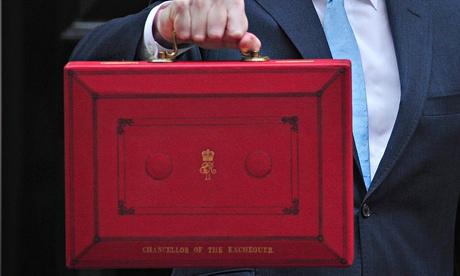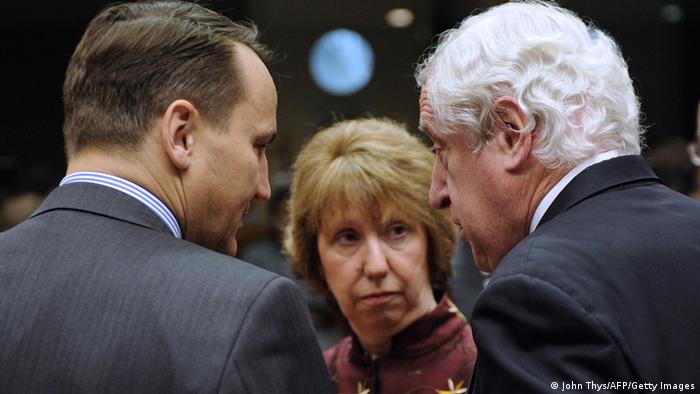By Pam Martens: March 17, 2014

Senator Elizabeth Warren Questioning Fed Nominee Stanley Fischer on March 13, 2014
Stanley Fischer did not get a proper vetting at his Senate Banking
confirmation hearing last Thursday to serve as Vice Chairman of the
Federal Reserve Board of Governors. Of the 22-member Senate Banking
Committee, only five Senators, outside of the Chair and Ranking Member,
showed up to question Fischer. Questions should have focused on
Fischer’s ties to Citigroup, the serially corrupt mega bank which
collapsed into the arms of taxpayers in 2008, requiring a bailout of $45
billion in equity infusions, $300 billion in asset guarantees to stop a
run on the bank, and over $2 trillion in below market rate loans from
the Federal Reserve to prop it up.
Of the five regular Committee members questioning Fischer, all
Democrats, only one, Senator Elizabeth Warren, brought up his ties to
Citigroup and the bank’s insidious relationship with government and
regulators. We’ll get to that in a moment. First, these are the issues
on which the public has been denied adequate information and which the
Senate Banking Committee has failed miserably to question.
In a
December 20, 2001 employment agreement
filed with the Securities and Exchange Commission on behalf of
Citigroup by Sanford (Sandy) Weill, Chairman and CEO, and Robert Rubin,
former U.S. Treasury Secretary turned Citigroup Board Member, a new Vice
Chairman, Stanley Fischer, would join the bank on February 1, 2002 with
a lavish compensation package for a man who had never worked in
commercial banking.
In addition to medical and other executive perks, Fischer’s employment agreement promised:
$41,666 in monthly compensation;
A $500,000 “sign-on incentive compensation award”;
A guaranteed bonus of $2 million for 2002, payable in cash and restricted Citigroup stock;
A stock option grant of 75,000 shares of Citigroup common stock, subject to Board approval;
And, finally, the bank would place
$100,000 in the super-secretive Citigroup Employee Fund of Funds I, LP
which lists an address in the Cayman Islands. In addition to fronting
the investment for Fischer, the “contribution will be enhanced with
company-provided two to one leverage.”
By 2004, Fischer was sitting on 188,748 employee stock options according to his SEC filing that year. According to an
SEC filing Fischer made
on January 20, 2005, he held a total of 84,791 shares of Citigroup
stock, worth approximately $4.08 million at that time. Wall Street On
Parade was unable to determine just how much Fischer made in profits on
the sale of his stock option awards but it is clear he liquidated or
exchanged them because they do not show on his 2005 filing.
Fischer’s employment agreement also contained the same type of caveat
that was revealed in the Senate confirmation hearing of Jack Lew, a
former Citigroup Chief Operating Officer now serving as U.S. Treasury
Secretary. If either Lew or Fischer left Citigroup for a high level
position in the U.S. government or a regulatory body, the restricted
money Citigroup had put away for them would be theirs to keep.
In Lew’s case, Citigroup, the insolvent ward of the taxpayer, paid
Lew $940,000 as a bonus from those taxpayer funds because he joined the
U.S. State Department as Deputy Secretary of State under Hillary
Clinton, making a few more government hops before landing in his current
post as U.S. Treasury Secretary.
Fischer’s employment agreement with Citigroup added a new element: he
could also join an “international” governmental body and keep his
incentive awards. The agreement read:
“After two years of continuous employment with the Company, in the
event that you terminate your employment for purposes of accepting a
high level position with a U.S. or international governmental or
regulatory body, then your outstanding stock options and restricted
stock awards shall vest upon your termination of employment.”
Fischer left Citigroup and immediately became the head of the Bank of
Israel, serving in that post until June of last year. But despite the
Bank of Israel having a supervisory role over banks operating in the
country through its Banking Supervision Department and Citigroup
boasting that it has the largest presence of any foreign bank in Israel,
Fischer did not exit his Citigroup Employee Fund of Funds I LP in the
Cayman Islands.

Stanley
Fischer, Former Vice Chairman of Citigroup, Nominated to Serve as Vice
Chairman of the Federal Reserve Board of Governors
According to his current financial disclosures to the Senate, Fischer
kept that investment after leaving Citigroup and currently holds
between $100,000 to $250,000 in the Fund. (That amount may not include
other distributions that have been paid out over the years.) Fischer
says he’ll exit the Fund if he’s confirmed to sit on the Fed Board of
Governors.
The Citigroup Employee Fund of Funds I LP is so secretive that on
December 31, 2001, the SEC filed a request on behalf of Citigroup in the
Federal Register requesting to exempt it and other key employee limited
partnership funds at Citigroup from certain provisions of securities
laws. The SEC said it was going to approve the exemptions unless someone
convinced it to hold a hearing. We could find no information on the
SEC’s web site to suggest that the exemptions were not approved or that a
hearing was held.
Among the many exemptions requested, Citigroup wanted “to act as
custodian for a Partnership without a written contract.” Citigroup asked
further for an “exemption from the rule 17f–1(b)(4) requirement that an
independent accountant periodically verify the assets held by the
custodian.” It also wanted an exemption to be able to keep the
partnership’s investments “in the locked files of the General Partner”
and to exempt members of the partnership from having to file reports of
ownership interests with the SEC.
According to Bloomberg News, Fischer now has a net worth between
$14.6 million to $56.3 million, according to his financial disclosure
report with the Office of Government Ethics. That’s more than a $40
million spread and a preposterous method of presenting financial
disclosures to the public.
On its web site, Citigroup boasts that it has “the largest presence
of any foreign financial institution in Israel and offers corporate and
investment banking services to leading Israeli corporations and
institutions, and global corporations operating in Israel. Citi also
offers private banking services to high-net-worth individuals living in
Israel.”
Despite it being the U.S. taxpayer that bailed out Citigroup after it
played a pivotal role in the economic collapse of 2008, Citigroup’s
loyalty to creating jobs to help rebuild the struggling U.S. economy are
bizarrely divided. According to its web site, in September 2011, while
Fischer served as the head of the Bank of Israel, it established a
Technology Innovation Lab in Israel with the aim of capitalizing on
“Israel’s vast technological talent to lead the financial industry into
the future of technology…The Lab is working on developing an array of
state-of-the-art financial and banking applications…Citi has opened a
Financial Data Intelligence Lab that will combine expertise in
big-data-analytics and domain knowledge within the financial markets.”
While Senator Elizabeth Warren did not get into the nitty-gritty
details outlined above, she did frame the core conflicts between
Citigroup and the perpetual stream of money men it continues to install
in high government positions. That not one other member of the Senate
Banking Committee had the guts to go near this subject is further proof
of the intractable corruption that plagues Washington.
Senator Warren said:
“Now, I’m concerned that the mega banks
not only have the capacity to tilt the financial system, but that they
also have the capacity to tilt the political system. You know, we’ve
learned that as big banks get bigger and bigger their lobbying power and
influence in Washington also tend to grow. That means big banks can
often delay, water down or even kill important regulations. So, size can
have ripple effects everywhere and for that reason I think it’s a
mistake to talk about size without considering how it affects the
ability of government to enforce meaningful regulation. A century ago
when Teddy Roosevelt and others worked to break up the giant trusts,
this was a big concern – not just the economic impact of size but the
political impact that came with size as well. So, Dr. Fischer, you have a
great deal of experience as an observer and as a participant in the
financial system, is this a point that you’ve thought about and do you
think it’s possible for large Wall Street banks to amass too much
political power?”
Fischer gave a muted response that he wasn’t convinced that banking
supermarkets actually achieve any economies of scale. Warren continued:
“Many big banks are well represented in
Washington but the connection between Citigroup and Democratic
administrations really sticks out. Three of the last four Democratic
Treasury Secretaries have Citigroup ties; the fourth was offered but
turned down the CEO position at Citigroup. Former Directors of the
National Economic Council and the Office of Management and Budget at the
White House and our current U.S. Trade Representative also have
Citigroup ties. You once served as President of Citigroup International
and are now in line to be number two at the Federal Reserve…”
Fischer said he thought his Citigroup experience would help him at the Fed. Warren plowed ahead:
“I also think it’s dangerous if our
government falls under the grip of a tight knit group connected to one
institution. Former colleagues get access through calls and meetings;
economic policy can be dominated by group think; other qualified and
innovative people can be crowded out of top government positions.”

Senator Chuck Schumer Lavishes Praise on Stanley Fischer During Confirmation Hearing on March 13, 2014
Senator Chuck Schumer of New York was next in line to “question”
Fischer. Instead of questioning, Schumer read the equivalent of a Man of
the Year Award salute to Fischer calling him “brilliant” and lavishing
praise on his credentials. It should be noted that Schumer did the same
for Jack Lew, former Chief Operating Officer of Citigroup, during Lew’s
confirmation hearing. Schumer has also previously led various drumbeats
for looser Wall Street regulations.
As Schumer read his sugary tribute to Fischer, he punctuated his talk
with frequent dagger stares in the direction of Senator Warren. By
exposing the money men sent from Citigroup, Senator Warren had also,
wittingly or unwittingly, pointed the finger at Schumer — their biggest
cheerleader in confirmation hearings.






